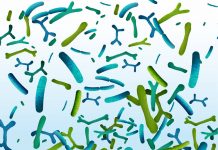
As you age, the risks of having dementia and Alzheimer's are very apparent. In fact, these conditions have become quite common for adults and seniors. And when health is not taken care of as young as possible, the risks actually increases.
In recent times, most adults and seniors are fighting the war with dementia and Alzheimer's. Although, as mentioned, it has become too common already, these conditions can be both prevented and naturally be treated. But of course, this comes with great considerations and responsibilities.
Read: Take This Vitamin to Reduce the Risk of Dementia and Alzheimers
Link Between Dementia and Diet
Your diet plays a huge role in your health. It is worth noting that what you consume on a daily basis affects your health status and condition dramatically. So, observing a poor and unpleasant diet may result in obtaining various serious illnesses and diseases in the long run. And this is also applicable to Alzheimer's disease and dementia.
As it happens, recent studies show that there is a vast link found between one's diet and dementia. While this hypothesis is pretty much a general knowledge already, these latest findings have pointed out which foods are the most effective in preventing, fighting, and even treating dementia.
If you intend to age gracefully in terms of your physical, mental, emotional aspects, then these seven foods may help you, especially if you are dealing with dementia:
Green Vegetables: Higher Levels of Folate (Vitamin B9)
Green vegetables, especially the leafy and dark ones like spinach, kale, and broccoli, are very beneficial to the health of your brain. It has been found that the main contents (vitamins and minerals) of these vegetables can naturally boost the brain functions.
In a study conducted about the matter, a pleasing result has been obtained showing that eating kale regularly is equated to having much younger cognitive functions. Thanks to the folate or vitamin B9 contents of these veggies, you can highly decrease the symptoms of dementia and ultimately eliminate the risks in the long run.
Nuts: Good Snack for Brain Health
Memory loss and impaired cognitive functions are some of the most apparent symptoms of dementia, which eventually requires the help of dementia care homes. But according to research, certain foods and snacks like nuts can naturally lower the risk of dementia. As it appears, efficient nut consumption has been found to improve memory capacity and boost brain functions.
And in touching and treating these symptoms, it essentially prevents the risks to further progress. As a result, nuts counteract the movements of dementia and Alzheimer's, which can ultimately eliminate the possibility of experiencing them.
Also, keep in mind that there is a good reason why nuts are referred to as brain foods. And this is why many dementia care homes for seniors almost always provide nuts and similar snacks for their patients.
Berries: Foods in Terms of Protecting the Brain
Aside from improving and boosting the brain functions, it is also important to protect the brain, along with its features and capabilities. And the most obvious type of food to consume is berries.
Berries like blueberries and strawberries are found to have high levels of flavonoids. And it is quite essential to note that flavonoids activate the brain pathways that are associated with less cellular aging.
According to SeniorGuidance.org, consuming berries regularly may help keep the brain young and healthy. Plus, it naturally protects the brain, which largely helps many people fight and eliminate risks of dementia. This is why berries are the most recommended fruits to consume when observing a mind diet.
Beans: High in Fiber and Protein
As per experts and dieticians, the reason why beans are really great foods for the brain is unknown. Even so, it has been found that incorporating a half cup of beans in your mind diet can highly decrease the risks of Alzheimer's and dementia.
As a replacement to red meat, which is a big no-no if you are to fight the war against dementia, beans can serve as a great alternative. Not to mention, it contains high levels of fiber and protein which are beneficial components that must be included in your day-to-day diet.
Read: CBD Oil and Omega-3 Fatty Acids: How They Work Together
Fish: Protect Brain Function
Salmon, mackerel, tuna, and halibut are types of fish that many doctors and dieticians recommend for individuals who are experiencing early symptoms of dementia and Alzheimer's. As it happens, these types of fish contain iodine, iron, and omega-3 fatty acids that are all helpful in maintaining the optimum cognitive functions. Moreover, the fatty acids in these types of fish are all found to be beneficial for the brain.
Although many assisted living communities would recommend for individuals to consume these types of fish more than three times a week, scholars and experts suggest that eating them once a week will already do.
Olive Oil: Greater Protection Against Cognitive Decline
Cognitive decline is one of the things that you must regard, especially when dealing and fighting with dementia and Alzheimer's disease. This is because an apparent decline would mean that these conditions might continue to progress in the long run. But even so, olive oil can help you with this matter as it is found to be a great brain protector against the decline.
As a matter of fact, specialists of today contend that utilizing olive oil on a daily basis is a must. And with its monounsaturated fats, vitamin E, and antioxidants, it can naturally protect the brain from having the risks of dementia.
Chocolate: Provide the Most Boost to Your Brain
Chocolate might be the most questionable food on this list. But even so, chocolates, especially the dark ones, are found to provide the most boost to one's brain. Thanks to its antioxidants that help the brain to function properly, consuming chocolates can all together reduce the risks of any other brain conditions and diseases.
However, keep in mind that consuming chocolates must not be regarded on a daily basis. Still, you have to know your limits, especially for the fact that chocolates are sweets.
Read: Dark Chocolate Can Enhance Your Mood
Bottom Line
To conclude it all, the seven foods given in this list are found to provide benefits to one's brain and its overall functions. And as you consume these foods depending on the given range and number of days, you will feel the difference in terms of your brain functions and capabilities.
But the most important point in this quick guide is the fact that what you are supplying with yourself through your mouth, your brain will be largely impacted. So, it is highly advisable that you observe good eating habits, most especially if you want to win the war against dementia and other brain diseases today.
Read this next: Could Exercise Help Save Your Brain from Alzheimer’s Disease?











